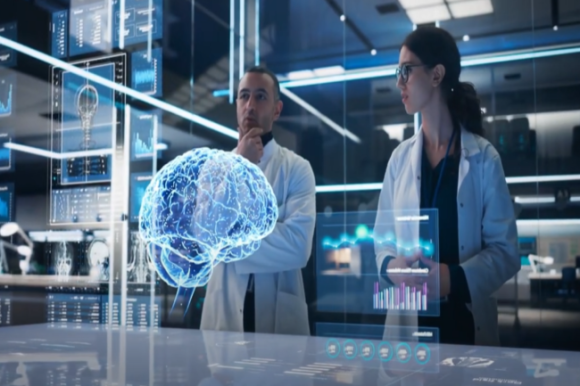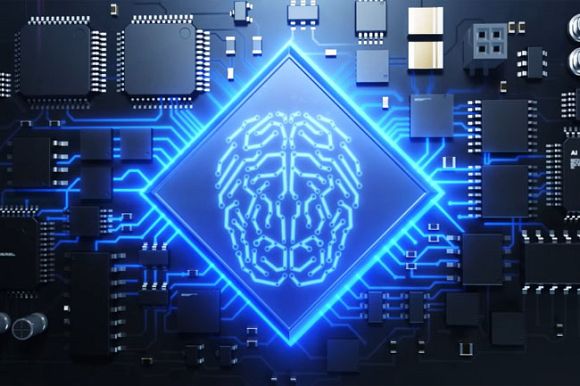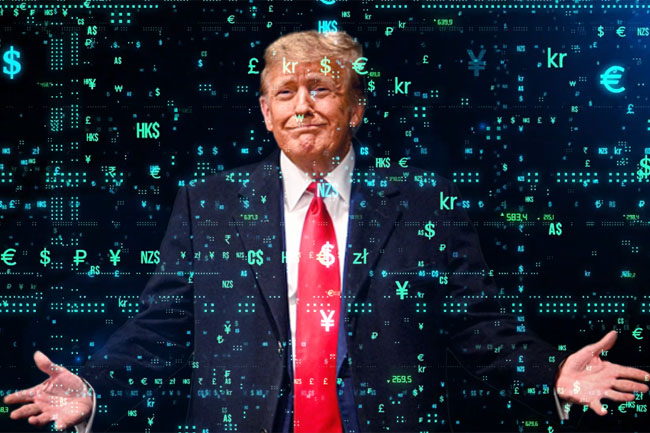According to one expert, the future of intelligent systems lies in the seamless integration of biological and artificial intelligence. Paul Budde writes.
LEX FRIDMAN, an influential figure in the realms of artificial intelligence (AI) research and podcasting, has sparked profound discussions at the intersection of biology and AI.
Through his multifaceted explorations, Fridman delves into the intricate dynamics of biological growth and its profound implications for the development of intelligent systems, whether they be biological organisms or artificially created entities.
We discussed Lex Fridman at a philosophy lecture by Dr Kerry Sanders. I have mentioned her before. During her Philosophy and History of Science course, she mentioned his work and the amazing theories he has developed regarding the encoding of our DNA. He philosophises that this includes information on how biology works and the intelligence encoded within it.
This prompted me to delve deeper into these theories, as Fridman also potentially links this to the development of AI. I would like to share this research with you, so here we go.
Biological growth
At the heart of Fridman's theories lies a profound appreciation for the underlying principles governing biological growth. He posits that these principles, intricately encoded within our DNA, serve as the blueprint for the remarkable diversity and complexity observed in living organisms.
Fridman often marvels at the elegance and sophistication of biological systems, emphasising the emergence of complex structures from the interplay of simple molecular interactions.
He reveals the concept of self-organisation, wherein intricate patterns and structures arise spontaneously from the inherent dynamics of biological processes. This notion underscores the inherent complexity of living systems and the need to decipher the underlying rules governing their growth and development.
Drawing inspiration from nature
A central tenet of his approach is the notion of learning from nature's solutions. He advocates for a holistic understanding of biological organisms, viewing them as a source of inspiration for the design of intelligent machines. By studying the brain, nervous system and other biological systems, Fridman seeks to uncover the fundamental principles driving intelligence and cognition.
His interdisciplinary perspective underscores the importance of integrating insights from diverse fields such as neuroscience, psychology, computer science and engineering. He believes that this convergence of disciplines holds the key to developing more sophisticated models and algorithms capable of emulating the complexities of biological intelligence.
Growing intelligent life and robots
Fridman's exploration of growing intelligent life or intelligent robots is deeply rooted in his fascination with nature's ingenuity. He envisions a future where AI systems not only exhibit human-like capabilities but also contribute to our understanding of intelligence and consciousness.
By mimicking the mechanisms of biological intelligence, such as neural networks and evolutionary algorithms, Fridman contends that researchers can create AI systems that possess adaptive learning capabilities akin to those found in living organisms. He emphasises the importance of evolutionary processes in shaping intelligence, advocating for the development of AI algorithms capable of learning and evolving over time.
The future of intelligent systems
In Fridman's vision, the future of intelligent systems lies in the seamless integration of biological and artificial intelligence. He envisions a symbiotic relationship wherein AI technologies enhance our understanding of biological processes while biological insights inform the development of more advanced AI systems.
His vision extends beyond the realm of technological advancement, encompassing broader philosophical questions about the nature of intelligence and consciousness. He invites contemplation on the ethical implications of creating intelligent machines and the profound impact they may have on society.
Of course, at this stage, these are just theories and yes, he also does have his critics, especially considering that much more detail will have to be provided. However, I appreciate his theories on biological growth and intelligent systems as they offer yet another angle of captivating glimpses into the interconnectedness of biology and AI.
It's refreshing to encounter fresh thought, and Fridman certainly demonstrates thinking outside the box, which I admire. Through his interdisciplinary approach and profound appreciation for nature's ingenuity, Fridman inspires us to unravel the mysteries of intelligence and envision a future where intelligent machines coexist harmoniously with biological organisms, shaping the trajectory of human civilisation.
Paul Budde is an Independent Australia columnist and managing director of Paul Budde Consulting, an independent telecommunications research and consultancy organisation. You can follow Paul on Twitter @PaulBudde.
 This work is licensed under a Creative Commons Attribution-NonCommercial-NoDerivs 3.0 Australia License
This work is licensed under a Creative Commons Attribution-NonCommercial-NoDerivs 3.0 Australia License
Support independent journalism Subscribe to IA.

Related Articles
- Nightshade empowers artists in the battle against unauthorised AI theft
- Intuition key to AI being a tremendous force for good
- AI holds promising future for quantum genetics
- Environmental balance: It's possible with the gift of AI
- An artificially intelligent solution to restoring civilisation













